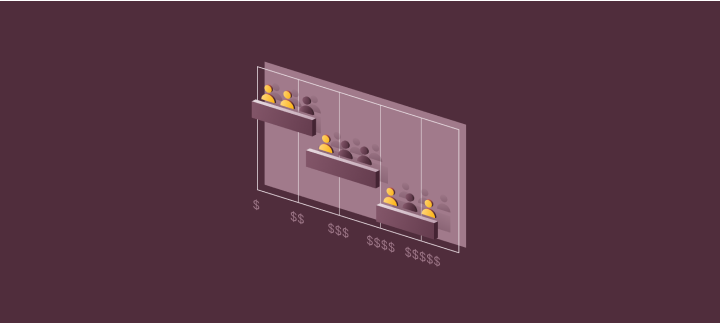The easy guide to employee background checks in Australia
When you're hiring in Australia, running background checks is an essential part of the process. Not only do background checks confirm your new hire's qualifications, but they can also help minimise the chances of hiring someone who could pose a threat to your company.
The process of running a background check can seem overwhelming and confusing. When hiring in Australia, companies need to know what's allowed under Australian laws, including their obligations around handling potential employees' data.
You've landed in the right spot if you need a resource to help you conduct thorough employee background checks in Australia that comply with legal requirements.
Are you legally required to run background checks on Australian employees?
All Australian states and territories require some form of a Working with Children Check (WWCC) that is mandatory for employees in education, childcare, healthcare, and other fields where workers regularly interact with minors.
While state laws vary, employees are also generally required to undergo Australian Police Checks, which release information about criminal history (with some limitations, including a worker’s right to not disclose criminal convictions 10 years after the fact).
Beyond that, while not always mandatory, employers can request information about job applicants relevant to the position, including education verification, past employment history, and social media checks. Employers need to obtain informed consent from job applicants before conducting background checks. It’s the employer’s responsibility to protect the applicant’s personal information, maintain confidentiality, and use the information gathered only for legitimate purposes.
Is it legal to run background checks on Australian contractors?
Yes, it's legal to run background checks on contractors in Australia, but it's important to note the context and specific requirements. Employers can request police or criminal history checks for prospective workers, including independent contractors, particularly if the role requires such scrutiny for safety or security reasons.
What types of background checks do businesses commonly run on Australian employees and contractors?
In Australia, you can conduct different types of background screenings, based on a new hire's role. Here are the most common types, and a few other background checks you can consider (more on each one below):
However, it is essential to ensure the request complies with the Privacy Act 1988, anti-discrimination laws, and any relevant state or territory legislation, as well as that the check is relevant to the job's inherent requirements. Consent from the individual being checked is also a must.
Common background checks
Less common background checks
Criminal record
Credit checks
Working with children
Social media profiles
Employment history
Medical records
Reference check
Civil check
Work authorisation
Education history
Here’s each type of check in more detail:
- Criminal record. Australian employers can conduct several types of criminal background checks. The Australian Federal Police conducts National Police Checks that reveal potential employees’ past criminal history. The Australian Criminal Intelligence Commission (ACIC) also oversees the Nationally Coordinated Criminal History Check, which reveals disclosable charges and convictions.
- Working with children. Per Australia’s Child Protection (Working with Children) Act 2012, WWCCs are compulsory for an employee to be qualified to interact with children.
- Employment history. You can contact the HR or payroll departments of a new hire's previous employers to verify their dates of employment, salary, and reason for leaving.
- Reference check. You can contact any references provided by a new hire and ask about job performance in their previous employment.
- Work authorisation. Australian employers can use Visa Entitlement Verification Online (VEVO) checks to verify whether a new hire is legally allowed to work in the country. VEVO checks can only be used for foreign employees and not Australian citizens.
- Education history. Employers can contact secondary schools, colleges, universities, and other educational institutions to request graduation dates, information on the course of study, and degree or diploma obtained.
- Credit reports. Credit score checks are often mandatory for employees working in finance to verify credit history and outstanding debts. In other fields, they’re less common, but can be used to confirm a new hire’s identity.
- Social media profiles. Employers can review any public social media information a new hire has posted and ask to access private profiles, but applicants aren't required to comply.
- Medical records. Employers cannot discriminate or deny anyone in Australia a job based on medical information. However, if a new hire requests adjustments or accommodations based on a disability or medical condition, their employer can request they provide a doctor's note.
- Civil check. Employers can verify whether a new hire has been a part of any civil litigation.
What types of background checks are illegal in Australia?
- All Australian states and territories have a 'crime-free period' that prohibits the disclosure of criminal history after 10 years (provided there have been no other offences since).
- Background checks need to comply with Australian anti-discrimination laws, which means not screening for protected attributes like race, religion, and disability.
- Employers also need to ensure they’re complying with the Australian Privacy Act. This means background checks should only collect information relevant to assess an employee’s suitability for a job (and not gather any sensitive personal information). Additionally, you have to ensure you don’t share the information with third parties uninvolved in your company’s hiring process.
When should you conduct Australian employee background checks?
Australian employee background checks should be conducted as part of the pre-employment screening process, typically after a conditional offer of employment has been made to a job applicant.
Employers should also notify the job applicant that a background check will be conducted and obtain their written consent.
Background check mistakes to avoid in Australia
- Collecting too much data. Employers must consider Australia's privacy laws and their emphasis on minimum data collection. This means only collecting the data that you absolutely need for the new hire's role.
- Not allowing the prospective hire to access the data. If a job applicant who underwent a background check wants to see what information was uncovered, it must be provided.
- Not getting applicant consent. Australia's privacy laws also require employers to obtain consent from applicants before beginning the process. Companies must also be upfront with candidates about what data they are using to run their background check, who their personal information is being shared with, and why.
- Skipping the background check. A successful employee screening process guarantees you hire an honest candidate most suitable for your role.
Frequently asked questions about background checks in Australia
Are background checks legal in Australia?
Yes, background checks are legal in Australia, provided they are conducted in compliance with Australian privacy laws, anti-discrimination legislation, and other applicable regulations.
Employers are allowed to request information relevant to the job position from job applicants, including criminal record checks, education verification, and employment history checks. However, employers must also obtain informed consent from job applicants before conducting background checks, protect their personal information, maintain their confidentiality, and use the information gathered only for legitimate purposes. Employers must also ensure that they don't discriminate against job applicants based on any protected grounds, such as race, religion, disability, age, sexual orientation, or marital status.
How do privacy laws affect background checks in Australia?
Australia’s Privacy Act outlaws the excessive collection, use, and disclosure of sensitive personal information. To adhere to Australia’s privacy protections during pre-employment screenings, you should make sure to:
- Only collect candidate information relevant to the role.
- Let the prospective employee know what information you’re gathering and why.
- Obtain written consent.
- Not share your new hire’s data.
How should Australian employers consider criminal history revealed from a background check?
Employers must be careful not to use criminal history information to disqualify applicants blanketly. They must also ensure that criminal history information is only considered when relevant to the job requirements, as people with a criminal record are a protected class under Australian human rights law.
Do different industries in Australia require different background checks?
Different types of background checks are allowed for different industries. The general rule in Australia is that an employer should only conduct background checks that are necessary to the new hire's role. For example, you should only conduct a driver's license check if the role requires driving.
What are the benefits of running background checks in Australia?
Background checks come with many benefits for employers, including:
- Enhanced security. Background checks can help filter out job applicants who would pose a threat to the company or its employees.
- Protection against negligent hiring. Companies can be held responsible for hiring employees who later engage in public misconduct. Background checks reveal past misconduct, helping mitigate this risk.
- Better hiring quality. Background checks help filter out candidates with discrepancies or inconsistencies in their work or educational backgrounds. They verify that applicants are who they say they are and that their stated qualifications are accurate.
- Protection from occupational fraud. Background checks protect your company's reputation by helping avoid fraudulent job seekers.
Disclaimer: Rippling and its affiliates do not provide tax, accounting, or legal advice. This material has been prepared for informational purposes only, and is not intended to provide or be relied on for tax, accounting, or legal advice. You should consult your own tax, accounting, and legal advisors before engaging in any related activities or transactions.











